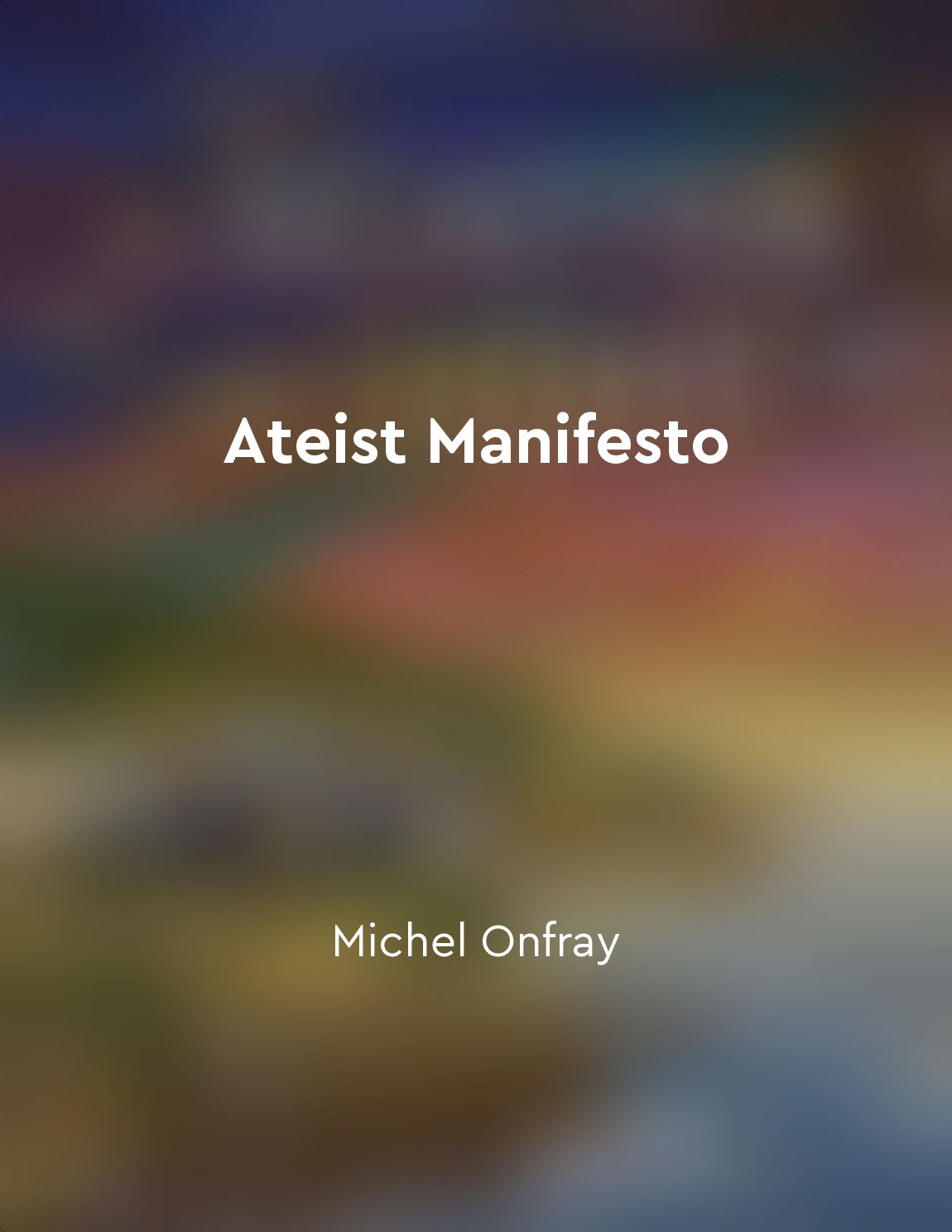Atheists value ethics based on empathy and reason from "summary" of Ateist Manifesto by Michel Onfray
In the absence of a god or divine mandate, atheists are free to choose their ethics based on empathy and reason. This means that their moral compass is guided by a combination of understanding and logic, rather than blind obedience to religious dogma. Empathy allows atheists to put themselves in another person's shoes, to feel their pain and suffering, and to act in a way that minimizes harm and promotes well-being. Reason, on the other hand, enables atheists to critically evaluate the consequences of their actions, to weigh the potential benefits and harms, and to make informed decisions that are in line with their values and principles.
By valuing ethics based on empathy and reason, atheists reject the notion that morality must be dictated by a higher power. Instead, they believe that moral values can be derived from human experience, observation, and reflection. This does not mean that atheists lack a moral compass or are morally relativistic. On the contrary, atheists can hold strong moral convictions and principles that guide their actions and behavior. These convictions are rooted in a deep sense of empathy for others and a commitment to reason and rationality.
Empathy allows atheists to connect with others on a fundamental level, to recognize the inherent worth and dignity of every individual, and to act in ways that promote justice, fairness, and compassion. Reason, on the other hand, helps atheists to think critically about moral dilemmas, to consider the consequences of their actions, and to make ethical decisions that are based on evidence and sound reasoning. This combination of empathy and reason provides atheists with a solid foundation for their ethical beliefs and values.Atheists value ethics based on empathy and reason because they believe that these principles are essential for creating a more compassionate, just, and ethical society. By prioritizing empathy and reason in their moral decision-making, atheists aim to foster understanding, cooperation, and respect among individuals and communities. This approach to ethics is not only grounded in humanistic values, but also reflects a deep commitment to the well-being and flourishing of all beings.

Open in app
The road to your goals is in your pocket! Download the Oter App to continue reading your Microbooks from anywhere, anytime.


